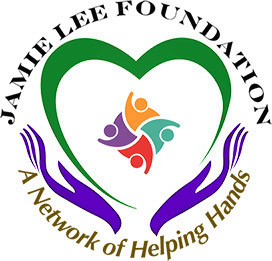
Even small donations have an impact
Poverty seems unsolvable…possibly because of the millions of people it touches (or crushes). However, there is a less visible collective prosperity throughout the world that when pooled together can have a significant and personal impact on those in need.
When giving to a charity, the size of your donation can directly tie to the number of people helped, but you don’t have to be a millionaire to make a significant difference. Small donations pooled effectively can still make a great impact. The proof of this truth is easily seen when you see the reduction in those living in extreme poverty over the past 35 years!

Giving makes us happier
Research has shown that spending money on ourselves does not significantly increase our sense of happiness or satisfaction. A Harvard Business School study suggests that giving to others is directly correlated with an increased sense of happiness. The Harvard researchers write: “Happier people give more and giving makes people happier, such that happiness and giving may operate in a positive feedback loop.”
And while other research has shown that this extends to people witnessing financial support of charity efforts and/or events–even if the money isn’t their own–there is still more happiness found in giving directly to a project or charitable organization.
Other studies have shown that people experience pleasure when they see money go to charity—even if this money isn’t their own. People experience the most pleasure, however, when they give directly to charity themselves.
Giving brings us closer to creating the world we would want to live in.
Giving equalizes the scales of circumstance
Those able to share their resources usually recognize that no matter how hard we work and prepare, there are still external factors that contribute to our success. Some factors include where we are blessed to live, who our parents are, the kindness of a neighbor or friend–and sometimes just plain luck!
This is particularly true for those born in America–even those born in less well-to-do homes. While all are not immune from poverty in our great country, being born in an affluent nation certainly increases our chances of receiving better healthcare, education, and stability.
Most of us recognize that we want the scales of justice (fairness) to balance for our benefit and one of the surest ways of doing so is to reach out and help others who have had less opportunity or fortune than ourselves.
Giving is part of our human DNA
All of us have experienced the instinctive response to help someone at some point in our life. It may be as small a gesture has helping someone to their feet after a nasty spill. Whatever the situation, there is a part of us that is wired to reach out and help those we see struggling with whatever afflicts them.
There is a reason why many cities put up no panhandling signs and aggressively communicate to their citizens that they prefer them to donate to shelters and soup kitchens than support panhandling. They have seen that the typical response of most people to help those they see in need.
We have all felt the guilt of deciding not to help someone who approaches us on the street for help–regardless of requests from city leaders that we direct our help to established organizations.
Last, and least of all, giving is tax-deductible
It’s nice to know there is a financial benefit to donations, but let’s face it, there is more financial benefit to investing in making more money out of what you already have.
The main reason to give is not in receiving a tax deduction–but rather a feeling of wellbeing and happiness. However, getting a little bit extra back for caring for others certainly brings a sense of confidence that we are being wise with the money we enjoy.



